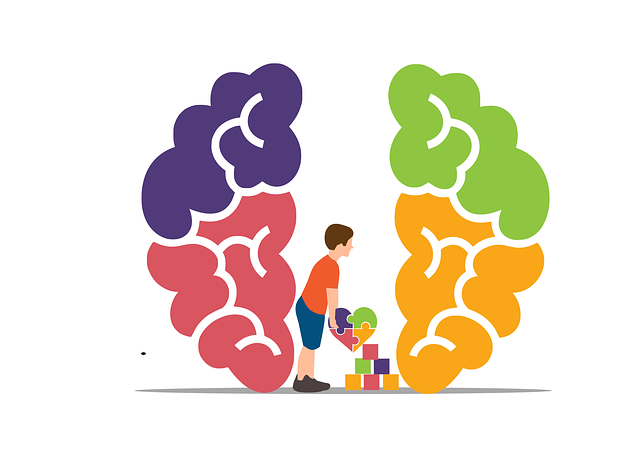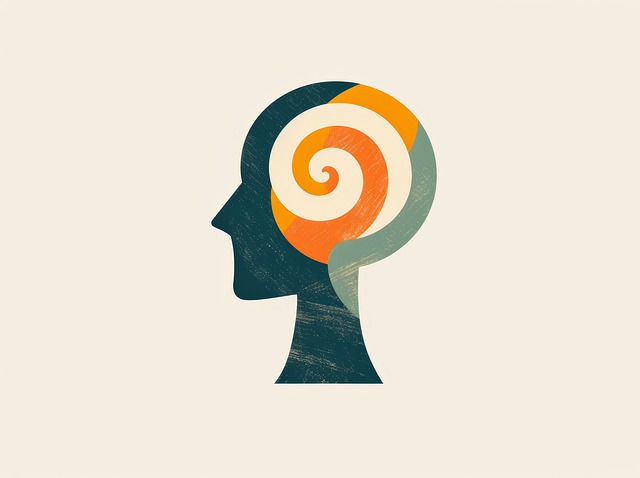Mental Health Crisis Hotlines are 24/7 lifelines offering immediate support and connecting individuals with trained professionals for various mental health crises, from depression and anxiety to suicidal ideation. With healthcare provider burnout on the rise, these hotlines promote resilience and emotional regulation, benefiting both patients and professionals seeking burnout prevention. Services like Littleton Sexual Dysfunction Therapy provide critical support during crises, focusing on issues impacting daily life through confidential, non-judgmental conversations. Accessing these hotlines is crucial for immediate assistance and guidance, reaching diverse demographics via phone, online chat, and social media. Effective hotlines rely on competent professionals with specialized training in areas like Littleton Sexual Dysfunction Therapy, ensuring tailored support. Post-crisis follow-up, including ongoing therapy or education programs, prevents recurrence and promotes long-term recovery, fostering resilience and sustainable solutions beyond acute crisis intervention.
Mental health crisis hotline support services serve as a vital lifeline for individuals facing acute emotional distress. In this article, we explore the critical role of resources like these in providing immediate assistance and long-term strategies for recovery.
We delve into the specific contributions of Littleton Sexual Dysfunction Therapy, examining their approach to crisis support. Additionally, we discuss the importance of accessibility, training standards, and post-crisis follow-up to ensure effective care. Understanding these hotline services is key to fostering a supportive environment for mental wellness.
- Understanding Mental Health Crisis Hotlines: A Lifeline for Many
- The Role of Littleton Sexual Dysfunction Therapy in Crisis Support
- Accessing Hotline Services: Availability and Reach
- Training and Professionalism: Ensuring Quality Care
- Post-Crisis Follow-up and Long-term Support Strategies
Understanding Mental Health Crisis Hotlines: A Lifeline for Many

Mental Health Crisis Hotlines serve as a critical lifeline for individuals experiencing severe emotional distress or mental health crises. These 24/7 services provide immediate support, offering a safe space to vent, seek guidance, and connect with trained professionals. They cater to a wide range of issues, from depression and anxiety to suicidal ideation and psychotic breaks, ensuring that anyone in need can access help promptly.
In today’s fast-paced world, where burnout among healthcare providers is on the rise, these hotlines play a pivotal role in promoting resilience building and emotional regulation. They serve as an essential resource not only for patients but also for healthcare professionals seeking to implement effective burnout prevention strategies. By offering confidential support, these services enable individuals to navigate their mental health journeys with dignity and hope, ultimately fostering a healthier and more supportive community for everyone, including those seeking Littleton Sexual Dysfunction Therapy.
The Role of Littleton Sexual Dysfunction Therapy in Crisis Support

In moments of crisis, when emotions run high and thoughts spiral out of control, Littleton Sexual Dysfunction Therapy offers a beacon of hope. This specialized service is designed to provide immediate support for individuals facing mental health challenges, focusing on issues that can significantly impact daily life. By offering confidential and non-judgmental conversations, therapists equipped with advanced training in depression prevention, stress management, and self-esteem improvement help clients navigate turbulent waters.
Littleton Sexual Dysfunction Therapy doesn’t merely address the symptoms; it delves into the root causes, fostering a safe space for individuals to explore their feelings, break free from negative thought patterns, and develop healthier coping mechanisms. Through tailored interventions, clients gain invaluable tools to manage stress, rebuild self-esteem, and prevent relapse, empowering them to take charge of their mental well-being and lead more fulfilling lives.
Accessing Hotline Services: Availability and Reach

Accessing hotline support services for mental health crises has become increasingly vital in meeting the diverse needs of individuals struggling with various issues, including Littleton Sexual Dysfunction Therapy. These 24/7 resources are designed to provide immediate assistance and guidance to those in distress. Whether it’s a case of burnout prevention or trauma support services, hotlines offer a confidential and non-judgmental space for people to share their challenges.
The reach of these hotline services is extensive, often catering to a wide range of demographics and languages. Many organizations operate multi-channel hotlines, including telephone, online chat, and even social media platforms, ensuring accessibility for those who prefer digital communication or live in areas with limited access to traditional phone services. This inclusive approach contributes significantly to improving mental health support, especially for marginalized communities, and offers a crucial step towards fostering better social skills training and overall well-being.
Training and Professionalism: Ensuring Quality Care

Mental health crisis hotline support services are only as effective as the professionals behind them. Ensuring that hotline operators and healthcare providers are well-trained and professionally competent is paramount. This includes specialized training in areas such as Littleton Sexual Dysfunction Therapy, catering to diverse communities with varying needs. The focus should be on fostering cultural competency among staff, enabling them to offer empathetic and tailored support.
By implementing comprehensive training programs, including Resilience Building and Stress Reduction Methods, hotline services can maintain high standards of care. Such initiatives equip professionals with the skills to navigate complex situations, provide immediate relief, and guide individuals towards long-term mental well-being. This holistic approach guarantees that those in crisis receive not just temporary support but also the tools for personal growth and recovery.
Post-Crisis Follow-up and Long-term Support Strategies

After an individual has received initial support through a crisis hotline, effective post-crisis follow-up is crucial to prevent recurrence and foster long-term recovery. This phase involves tailored interventions designed to address specific needs, such as ongoing therapy sessions for complex cases or mental health education programs aimed at equipping individuals with coping strategies. Services like Littleton Sexual Dysfunction Therapy can play a pivotal role here, offering specialized treatment plans tailored to diverse needs.
Long-term support strategies should encompass a comprehensive approach, including risk assessment for mental health professionals and the integration of evidence-based practices. Mental Health Policy Analysis and Advocacy also contribute by ensuring that resources and policies align with best practices. Through these multifaceted efforts, individuals can navigate their journey towards mental well-being, building resilience and finding sustainable solutions beyond acute crisis intervention.
Mental health crisis hotline support services play a pivotal role in providing immediate assistance and long-term strategies for individuals facing mental health crises. As highlighted by the article, from understanding the importance of these hotlines to the specific contributions of Littleton Sexual Dysfunction Therapy, it is clear that access to quality care can be life-saving. Ensuring ongoing training and professionalism among hotline operators is essential to maintaining effective support. By integrating post-crisis follow-up and fostering a comprehensive approach to care, we can create a more resilient and supportive environment for those in need.














